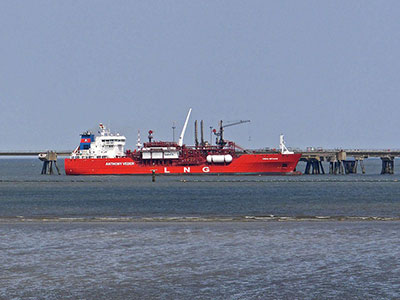The Impact of Low Oil Prices on Natural Gas and the Implications for the Asia-Pacific
This paper examines the current prolonged period of low oil prices and assesses its effect on the natural gas sector in the Asia-Pacific.
EXECUTIVE SUMMARY
MAIN FINDINGS
The dramatic fall in oil prices has significantly affected the natural gas sector, particularly in the Asia-Pacific, where the liquefied natural gas (LNG) trade is dominant and natural gas plays a significant role in national and global gas markets. This is because in Asia gas prices are indexed to the price of oil and there is competition between gas, coal, and oil products. The oversupply of natural gas in Asia is unlikely to change in the short run, and the glut is expected to continue until at least 2020 due to existing contract arrangements, high capital requirements for projects, and long lead times for project development. In the medium to long term, however, disruption in the gas supply may occur. On the demand side, low gas prices will increase consumption of natural gas from existing markets—a trend that will be accelerated by the global momentum to combat climate change—and additional demand will come from the development of new markets. These efforts, however, could suffer from coal limitations, emissions restrictions, and subsidy removal. Although total investment in natural gas will be depressed, structural changes favor the gas sector. Low oil and gas prices have affected trade dynamics in contract flexibility, U.S. LNG, and market liberalization. Shifts of bargaining power and economic competiveness could also emerge as outcomes. The exporters may be more aggressive, and global energy governance needs to be reformed to achieve sustainable natural gas markets.
POLICY IMPLICATIONS
- Additional demand for natural gas should be developed either through new markets or by boosting consumption in existing markets to rebalance and develop a sustainable and robust natural gas sector in the Asia-Pacific.
- Stakeholders should continue to eliminate destination restrictions on gas exports and use this low-price opportunity to transition the natural gas pricing mechanisms from oil indexation to hub indexation.
- Asia needs to accelerate gas market liberalization and hub building to improve the future sustainability of its gas markets. Priority areas include separating transportation from commercial activities, allowing third-party access to pipeline and LNG terminals, and liberalizing gas prices.
- Holistic energy and environmental policies are needed to avoid backfire effects. For example, cross-country policy coordination is needed to avoid having the replaced coal from countries undergoing significant efforts to mitigate climate change simply move to other countries and crowd out gas consumption.
Xunpeng Shi is Senior Fellow and Deputy Head of the Energy Economic Division at the Energy Studies Institute at the National University of Singapore.



